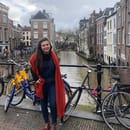The Breast Check programme was paused on the 16 of March. It has since resumed with a massive backlog and strict procedures in line with government health advice. Numbers would have to have been doubled to cope with the summer backlog. This of course is not feasible at present, as units have to be disinfected between appointments.
A final year student in UCC was referred for a breast check after an appointment with her GP. The twenty-one-year-old was referred in early June. Five months later she has yet to receive a date. “They said it would be three months but it’s been longer.”
Before visiting her GP, the student admits she would not have known how to do a simple breast check on herself or what to look out for. After a summer of frustration and worry, she now wonders if paying to go through the private health system would be worth it for the peace of mind. She realises she is not the only woman that has endured a summer of waiting and worry.
“I just think screenings and anything health-related should be at the top of the list. I know life must go on outside but how can things go back to normal when there are all these women waiting on screenings.”
Tara Clerkin is a DCU graduate and a PME student at Marino College. During her end of year exams in May 2019, she found a hardness in her breast. “I dismissed it as nothing important”, she explains. “I didn’t have a family history of breast cancer so the thought it could be cancer never occurred to me. I waited two months to see if it would go away but the hardness only spread covering the top right half of my breast.”
A GP asked if she had a family history of breast cancer. “It was the first time I heard the phrase ‘breast cancer’ being mentioned. I was only twenty-one.”
Clerkin’s GP reassured her that it was “probably just a cyst that would go away itself, it was nothing to be worried about.” She left the doctor’s office feeling relieved with a referral to the breast clinic in Beaumount hospital. “The doctor even joked that I could just have uneven breasts.”
Clerkin debated going to the follow-up appointment but was encouraged by her Mam. “I felt like I was just being a drama queen and that I didn’t have the right to be there. When I attended the appointment, the majority of the women were in their 60’s accompanied by their husbands. I felt ridiculous that I was taking up the doctor’s time in the hospital when there was clearly nothing wrong with me.”
After an ultrasound, mammogram, and a breast biopsy Clerkin travelled to an outpatient clinic for an appointment. “He said ‘Tara there’s no easy way to say this but you have breast cancer, we were all very surprised as you’re only twenty-one.”
The multidisciplinary team had already decided on a treatment plan. “I felt cheated as they all knew before me and my fate was now in their hands”, reflects Clerkin. The plan consisted of five months of chemotherapy, a mastectomy, three weeks of radiotherapy and five years of hormone therapy.
Fast forward to October 2020. Clerkin is following her dream of becoming a primary school teacher (albeit via online classes). “I have completed my treatment plan (bar the hormone therapy) and I am now on oral chemo for five months as a precautionary measure.”
Clerkin documented her treatment plan, chemo and regular hospital visits on social media. “When I was diagnosed, I followed a lot of women with breast cancer on Instagram, I wanted to become part of the conversation so I started documenting my experience there.” Raising awareness was something that was important to Clerkin.
“There’s a misconception that young people don’t need to get regular checks. Although the number of women diagnosed with breast cancer under thirty is relatively low, there are still a small number of women who will be diagnosed so it’s important to be aware”.
Amy Donohoe takes time out of her busy schedule regularly to check for abnormalities. The Cavan native has a family history of breast cancer and has learned how to check herself for changes. “I know how to look at myself and I suppose if I was taking a shower I’d always have a look.”
Donohoe’s Granny was diagnosed with breast cancer in 2016. Donohoe’s first year of college was spent travelling up and down from Dublin to Cavan, unable to focus or pay attention in her DCU Journalism lectures.
The mother of twelve and grandmother of 28 sadly passed away. Donohoe realises the importance of learning how to check for changes in her own body. She believes that many young people may immediately reach for Google when in doubt instead of sticking to reliable sites like HSE.ie and the Marie Keating Foundation website.
The Irish Cancer Society website says to regularly check for signs like:
-
A lump or thickened area (breast or under arm)
-
Changed Breast Size/ shape
-
Redness
-
Skin texture changes
The Marie Keating Foundation suggests checking at least once a month for physical changes in a mirror before feeling for changes and bumpy areas using small increasing circles. The week after your period is the best time to check.



